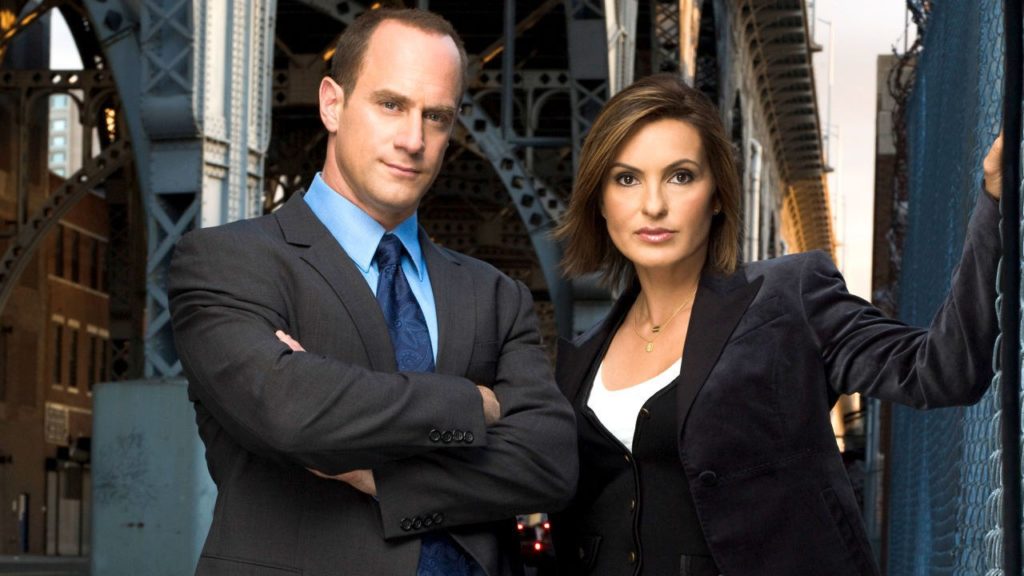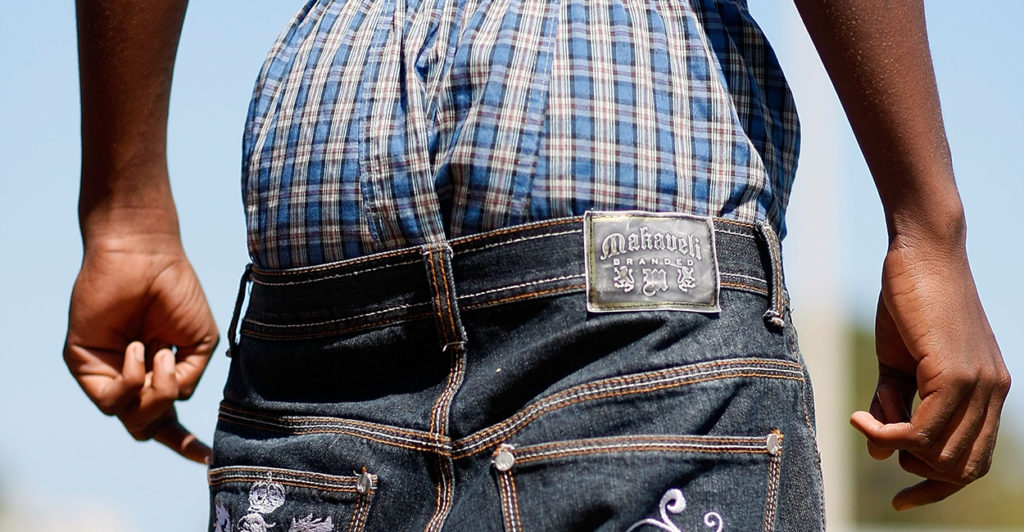Law and Order Society
Judging by the popularity of TV crime shows, many people appear to be fascinated by criminology and the criminal justice system! This could explain why you decided to take this class…or why you might decide at some point to major in criminology/criminal justice.
Why do you think people are fascinated by crime and criminal behavior? How does the popularity of so many TV shows reflect something about the American mindset towards crime and criminal behavior?
Some crimes fascinate us because they defy explanation – murder, serial killing, rape, mass shooting. While this sort of crime might lie far outside the realm of our individual experiences, the world of TV allows us to peer through the window so to speak; we now have a front row seat that permits us to get up close and personal with larger than life characters as well as other people and events that are removed from our day to day experiences.
It is only natural, as humans, that we seek to understand things that defy explanation. We look for reasons to explain that which appears to be unreasonable. This course will explore some of the theories and causative factors that underlie crime and will look at what might motivate people to commit crime. We’ll look at the different sources of data and other information available for researchers and students, who might want to assess the different patterns that are in evidence as part of an effort to explain crime.
What’s the Difference Between Criminology and Criminal Justice?
The academic differences between the study of criminology and criminal justice break down simply as follows:
Criminology is the study of the science of crime and criminals. Criminologists tend to be degree-holding academics, researchers, and policymakers, who study crime and criminals as well as associated social trends and patterns of activity that may apply to the former.
Criminal Justice is the study of the institutions that make up the criminal justice system: courts, police, and the law.
What is a Crime?
Simply put, a crime is any human conduct that violates the criminal laws of a state, the federal government, or local jurisdiction that has the power to make and enforce the laws. But we will not only be concerned with what factually constitutes a crime in this course. We’ll also take a look at what may be considered as falling short of criminal behavior – what is deviant or abnormal – and the process by which human conduct may at some point fall outside of social norms, but not the law.
A youngster wears his pants with underwear showing in Riviera Beach, Florida (Photo by Joe Raedle/Getty Images)
Crime, Deviance, Delinquency
Pants “sagging,” for example, was for some people deviant, based on social norms, but not against the law. Now, as a result of public outcry, some jurisdictions have passed local ordinances to prohibit the practice. Critics argue that pants sagging is not only not criminal, it is not deviant, to the extent the practice merely expresses a fashion statement. More important, the practice of sagging one’s pants ultimately hurts no one and prohibition constitutes a form of racial profiling.
This case is a classic example of how people point to a consensus view of what some would argue is “bad behavior.” Seeing this as a breach of social norms, people in some communities decided to politically mobilize and redefine bad behavior considered deviant, reclassifying it as behavior that is subject to criminal sanction.
Delinquency, on the other hand, is a term that is used to refer to violations of criminal law and deviant behavior committed by young people. The law typically defines “young people” as youth who have not yet attained 18 years of age (varies by state). After attaining the age of 18, youth are processed in the adult criminal justice system.
What Should Be Criminal?
There are two perspectives that help define the U.S. CJ system perspective on crime and criminality: 1) the consensus perspective; and 2) the pluralist perspective.
The consensus perspective emphasizes homogeneity; it is an approach to understanding criminality informed by the idea that most members of society agree about what is right and what is wrong and that the various elements of society work together toward a common vision of the greater good. Put another way, this model assumes that the majority of citizens in a society share the same values and beliefs. Criminal acts are acts that conflict with these shared values and beliefs; this view, likewise, assumes there are values and morals that we all agree on and that they should be reflected in the law. Multicultural societies like the United States find it difficult to achieve this model. Despite this, there are residential areas in the U.S. that are less diverse, where people are more easily drawn to the consensus perspective and to feel that this is a “natural” way to think.
Alternatively, the pluralist perspective emphasizes diversity; it is an analytical approach that holds that a multiplicity of values and beliefs exist in any complex society. In spite of this, most social actors agree on the usefulness of law as a formal means of dispute resolution, even as it is understood that in a diverse society with many different social groups conflict is inevitable.
It is the view of both perspectives that the legal system is value-neutral and should be concerned with the best interests of society.
Discussion
Think about the crime shows that you have seen on television and reflect on which shows you found engaging. Why did you watch or like them? How do you think they have influenced what you know and how you think about the criminal justice system, police and the profession of policing, and who is/is not a criminal?



I watched a lot of crime shows on television and each of the shows I watched, I found interesting in their own way because of the plot of the story from that episode, and some of the times I found some episodes more interesting then others because of the people who would guest star and also the guest stars role that they would play. What I also liked was that the cases where stories that I had heard about, like the Trayvon Martin case. Watching that episode intrigued me more into the show because most of the episodes I watched were about rape, abuse, and kidnapping but seeing that episode brought more of my attention to the show because of course the show could say the cases are real stories from detectives and that be false but after watching that episode about a case that happened in current time verified that for me. Watching the shows gave me a little more insight on how the justice system works like for example, the jury determines really if you walk free or get your rights taken from you and face imprisonment and it is between the attorney and defendant to persuade the jury that the person being accused is either guilty of the crime he is in court for or innocent and I learned that sometimes the defendant tells there client to plead guilty in hope of shortening the sentence. As I continued to watch more and more shows I learned a lot of new terminology and jobs like the difference between a police officer and a detective, about the SWAT team and their job, the coroner the forensic scientist etc. Learning all the information I did it made me think the criminal justice system was fair but also it had a lot of flaws too it, like how detectives would think one person was the culprit of a crime but the person that was least suspected was the actual perpetrator and the person who they originally believed to be the one who committed the crime was the one scared to tell the truth because of how traumatized they were of what happened to them. That show is the reason I can believe that some police officers are actual good police officers, and they are just as scared, and they want to make it home to their family just like anyone in any job. I believe one of the causes of the problems is how they are trained. To really change anything, you must start at the root of the problem and once that step is taken people will just have to cooperate for there to be change. I feel as though one major issue of crime and punishment is that 2 men can commit the same crime and get two different outcomes whether it be the color of their skin or anything it is unjust. It is unfair that happens. I do not have a solution to that issue, but I know how I feel about it. I completely understand that if the evidence shown explains that the person who committed the crime is guilty, but the punishment should not be altered because a claim of a mental illness that no one paid attention to until people got hurt.
I have always been interested in how the crime system works. Also I always caught myself watching more and more crime shows and my interest grew towards the subject. Plus I have always wanted to help the community in some way or another. I want to learn about peoples hardships and also possibly be able to help people start a new chapter of their life.
I grew up watching Law and Order: SVU with my mom. I don’t know why she let me watch it at quite a young age but she did. I liked the show because it was exciting and something I’d never seen before especially when I was 12. I think this show allowed me to develop a lot of misconceptions about crime. The show was also very realistic at times, I remember an episode where a prison guard raped a woman. At the time I thought it was unrealistic but looking back that could be quite true. As an adolescent I didn’t think police could be bad or wrong and I didn’t think people were ever falsely convicted of crime. I didn’t think there was injustice in the criminal justice system but I have grown to realize that there is.
Watching TV crime shows is one of the many reasons I have decided to take this course. The criminal justice field has always been fascinating to me and TV shows like Homicide Hunter, Forensic Files, Dateline, and even Law & Order have reassured me that this would be a good major for me. Crime seems to have become more common in the US, but I think it has just become more televised. Watching many crime shows has determine how I feel about police and even detectives. These shows show how some police can be racists, crooks, and even understanding cops. These shows have also helped me to sometimes determine who is a criminal and who is not due to common sense but sometimes it is not easy to tell who a criminal is. Many stereotypes are made to put certain groups of people into certain criminal groups. I want to get involved in the criminal justice system to look into crime and look further into real criminals.
I’ve always been interested in crime since I was a child, I was always curious to know what was happening in the world and who was committing them. i watched Cops as a kid and it always was interesting because I had family members who were in and out of jail and I wanted to know what it was like. Honestly watching Cops a a kid helped me stay out of trouble because i was always scared of the consequences.
I’ve been watching crime shows since I was a little kid. Not because I was interested, but because my mom would watch it and I would be around to watch it as well. Of course, over time I realized how interesting it is, causing me to be interested in it as a career ever since. I like how real crime shows like First 48 and Dateline go into detail about all the evidence that they find on the scene and how the show interviews between suspects & witnesses. On fake crime shows such as Law & Order show detectives taking whatever risks they need to to accomplish their mission. This has caused me to constantly remind myself that a police man or detective will do whatever it takes to put the suspect behind bars. This can be a pro and/or a con in many ways. This could mean that detectives successfully put the suspect behind bars. Or as a con, can result in police officers racially profiling innocent people and putting them behind bars for a crime they did not commit.
Test Comment.
Test
Test.